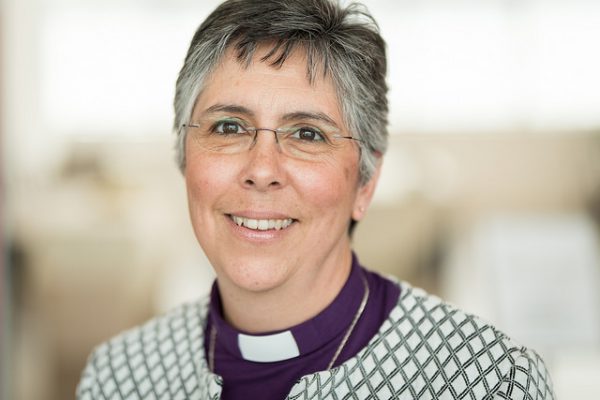What with the #Golfgate row, the thirst for punishments and polarising conflicts worldwide you’d wonder if Covid-19 wasn’t infecting brains and temperaments. There has been much honest grappling with challenging issues but also much casting of first stones.
On Thought for the Day (BBC Radio 4) last Wednesday morning, Anglican Bishop Dr Guli Francis-Dehqani took a measured view. She reckoned we’d have to learn to live alongside the virus. She reminded us that most faith traditions taught that “each life was precious and valued”, that the Judeo-Christian view was that every individual was cherished by God in whose image we are made. We needed to take health warnings seriously, to value physical safety but not exclusively. If we were gripped by fear of illness and death we could lose sight of other virtues like compassion, kindness and community.
These virtues got short shrift from some callers on last Friday’s Liveline (RTÉ Radio 1). Bishop Emeritus of Killaloe Dr Willie Walsh tried to calm the waters. He was concerned that as a society we were becoming very harsh and unforgiving. He accepted that #Golfgate involved a “serious error of judgement” but was uneasy with demands for “heavy punishment”. It struck me that forgiveness and due punishment aren’t mutually exclusive, and I’d like to have heard more on the concept of mercy. I was reminded of the words of Mary Gauthier’s song: “We all could use a little mercy now.”
Fearful
Bishop Walsh was fearful of absolute statements and thought the Church had erred in that area, though I’d like to have had greater clarity on when absolutes are appropriate and when not. Can we believe in some absolutes without being absolutist?
After his line suddenly went dead there followed a head-wrecking conflict among callers with contributions varying from painfully strident to reasonably calm. One woman was very unfair to the bishop, saying he wasn’t in any position to “dictate” to anyone. Dictating was the last thing the bishop was doing and later he was defended on that score by Fr Iggy O’Donovan who also suggested we were in danger of losing the societal solidarity evident at the time of the original lockdown. I think that’s a justified fear at the moment.
He also suggested that the “new morality” could be just as oppressive as what we’ve left behind.
I did, however, enjoy all the colourful metaphors – we can get angry, but we don’t lose our penchant for the poetic. One caller sarcastically accused another –”you should be canonised!”; Fr O’Donovan said he was seldom seen as a “spear bearer for the bishops”; there was talk of “slave labour” in meat factories but presenter Katie Hannon put a stop to that – the kind of language, she said, that could land them in the High Court.
Alcohol was described as “Covid’s biggest friend”; an angry caller accused the Clifden 81 of “spitting in our faces”, a particularly apt if repulsive image; a “social bomb” was mentioned; being kind was said to be going out the window; and in relation to Phil Hogan’s somewhat forced resignation from the European Commission, there were references to cutting off noses to spite faces.
One caller used the Mannix Flynn documentary Land Without God (RTÉ One, Thursday) as a weapon against Bishop Walsh. And sure enough, it was a grim reminder of harsher times with children being put away in institutions.
It was a very personal, sometimes poetic but harrowing story of what happened to several generations of the Flynn family, in and out of reformatories and prisons, with stories of “harsh punishment of petty offences”.
It was insightful and disturbing but could have done with more historical context, verification and sharper editing and direction. There was a general and understandable bitterness towards the Catholic Church that might have been better focused more on specific institutions (Daingean and Letterfrack got a pasting).
The bitterness sometimes clouded judgement – one contributor said no one went to jail for the abuse but also that when they did go to jail they were well treated. There was reference to being baptised “with a sledge hammer” and a cheap shot at “the Little Sisters of the Rich”. Flynn reckoned the system was “designed to annihilate us all”.
I’m just glad we’ve largely moved on from those times, but as a society we need to be careful not to create other abuses that future generations will lambaste us for.
Pick of the Week
POVEDA
EWTN, Sunday, September 6, 9pm
(2016) The story of Fr Pedro Poveda: saint, martyr and innovative educator.
THE MEANING OF LIFE
RTÉ One, Sunday, September 6, 10.30pm
Joe Duffy takes over as host. The first guest is performer Blindboy Boatclub.
MY HEART IS NOT AFRAID
EWTN, Monday, September 7, 9.30pm also Friday, September 11, 9am
The martyrdom of Alojzija Grozde, a young Slovenian student and member of Catholic Action who was killed after Yugoslav Partisans discovered him carrying religious books during World War II.


 Brendan O’Regan
Brendan O’Regan Dr Guli Francis-Dehqani delivered the Thought for the Day
on BBC Radio 4 on Wednesday of last week.
Dr Guli Francis-Dehqani delivered the Thought for the Day
on BBC Radio 4 on Wednesday of last week. 